I know ya all love to hate on chemicals, but I’m taking a stand for chemical exfoliants (those with exfoliating acids). Chemical exfoliants are better than physical exfoliants in every way. Hear me out.
When I first started exfoliating, I’d use a scrub. Not that I had much choice in the matter. Scrubs were all I could find in the shops. And they worked ok. I could never get into St Ives Apricot Scrub (way too harsh for my skin), but I loved those with sugar. They usually smell delicious!
But I was never totally happy with them. Even though I tried to be gentle and not massage them on my skin too long, those little particles of sugar (or apricot, walnut, whatever) often left my skin raw and irritated. I thought that was normal.
Then, someone recommended I try glycolic acid. I don’t remember who that angel was, but I remember what happened. Bells rang. The clouds parted. Angels began to sing. My skin looked awesome. Softer. Smoother. Radiant. I got all the benefits of exfoliation without the side effects. About time too, if you ask me!
Since that day, I’ve been raving about chemical exfoliants to everyone who would listen. Today, I’ll be raving about them to you. I hope that, by the time I’m done, you’ll do the switch too. I promise, once you do, you’ll never go back again.
- What Are The Benefits Of Exfoliation?
- Chemical VS Physical Exfoliants: What Are They?
- 1. Chemical Exfoliants Are Gentler On The Skin
- 2. Chemical Exfoliants Are More Precise
- 3. Chemical Exfoliants Are Multi-Taskers
- 4. Chemical Exfoliants Are Better For Sensitive And Acne-Prone Skin
- What Are The Best Chemical Exfoliants?
- The Bottom Line
What Are The Benefits Of Exfoliation?
Before I tell you why chemical exfoliants are better than physical exfoliants in every way, let me tell you all about the benefits of exfoliation. Exfoliation is the process of removing dead cells from the surface of your skin. Here’s why this is so good for your skin.
“The life cycle of a cell is about three months in children and only about 30-50 days in adults, which means our cells are dying a lot faster as we age,” says licensed medical aesthetician Bre Knouse. “This leads to dead skin cell build-up, clogged pores, dryness, dull complexion and rough texture.”
Here are all the benefits of exfoliation:
- It makes skin softer and smoother
- It brightens the complexion and gives it a subtle glow
- It helps treat and prevent acne (if dead cells are off your skin, they can’t get stuck in your pores and cause breakouts)
- It helps to fade away dark spots faster
- It helps your skincare products better penetrate your skin
Who knew that removing old dead cells could do so much for your skin?
Chemical VS Physical Exfoliants: What Are They?
I know, just the word chemical is enough to throw you in a panic. But, there’s nothing dangerous about them. Chemical exfoliants simply work by dissolving the “glue” that holds skin cells together. Once that’s gone, they simply slough off and away.
“Chemical exfoliation is a method of removing dead skin with chemical exfoliants, which work to break the bonds that hold the skin cells together,”says board-certified dermatologist Dr. Melanie Palm. “Breaking these bonds helps to shed the top layers of the skin cells, which results in a smoother, brighter and more even-toned complexion.”
There are lots of different chemical exfoliants, but the main three types that pop up again and again in skincare products are glycolic acid, lactic acid, and salicylic acid. I’ll tell you all about them later.
Physical exfoliants are scrubs and treatments like microdermabrasion. They use physical particles, like apricot kernels or sugar, to manually remove dead cells off your face. You’re scrubbing them away (get it?).
“Physical exfoliation can be achieved by a number of methods, like using a scrub, brush or washcloth, to manually dislodge dirt and dead skin cells from the outermost layer of the skin,” Dr Palm says.
Related: What’s The Difference Between Chemical And Physical Exfoliants?
The Ordinary makes some of the best chemical exfoliants – and they’re so affordable, too! But which one is right for you? Subscribe to the newsletter below to download The Ordinary Products Guide (it’ll help you choose the right Vitamin C and retinol products from The Ordinary, too:
So, why are chemical exfoliants better than physical exfoliants and scrubs? Several reasons:
1. Chemical Exfoliants Are Gentler On The Skin
You’d think that a chemical would be way harsher than sugar or walnuts (which, by the way, are made up of chemicals too), wouldn’t you? It’s actually the other way around. Walnut shells, apricot kernels and other small particles used to manually exfoliate skin often have rough, jagged, and uneven edges that tear and scratch the skin, leaving it red and irritated.
Even gentler particles, like sugar, can seriously irritate skin if you scrub too hard or too long. And let’s face it, we often do. Isn’t it satisfying to see all that gunk come off? Chemical exfoliants can be irritating too. Usually, that happens when you use a concentration that’s too high for you. And there’s no need for that. Even 2% or 5% concentrations work well so there’s no need to start or go high.
With a scrub, you risk irritating your skin every time you use it. But when you pick the right concentration of your fave chemical exfoliant, you can use it safely – it’ll bother your skin only if you use it too often (I don’t care what brands say, you can’t exfoliate daily).
Related: Is The Clarisonic (Yes, That’s A Physical Exfoliant!) Good Or Bad For Skin?
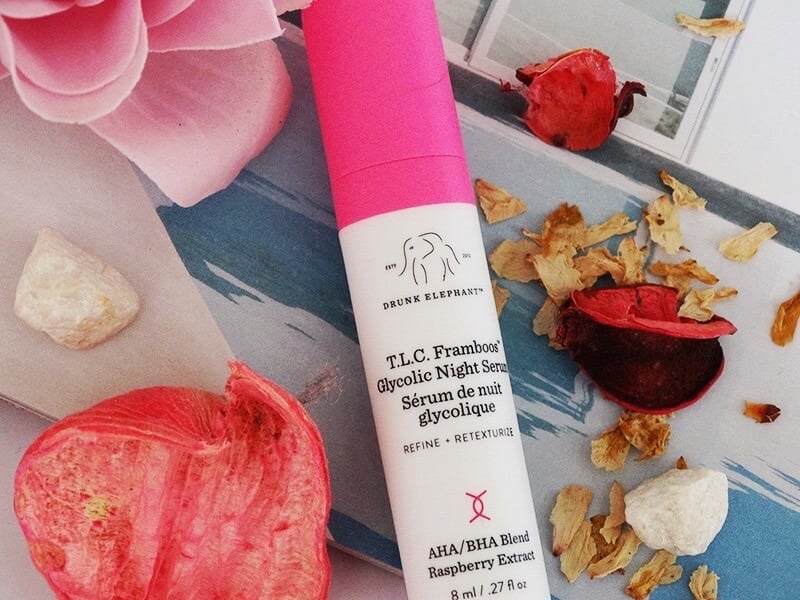
2. Chemical Exfoliants Are More Precise
It’s so difficult to exfoliate skin evenly with a scrub. Exfoliation depends on you and how long you rub the scrub on your skin. And we don’t exactly time how many seconds we spend on our cheeks, forehead, etc, right?
Too often, we spend more time on the right cheek than the left cheek for example, so that one becomes softer and glowier (or redder and more irritated) than the other. That’s not to say you can’t get good result from a scrub. You just have to be more careful with them.
How well a chemical exfoliant works, instead, depends on the strength of the exfoliating acid it uses. So, if you apply 5% glycolic acid all over your skin, it’ll exfoliate all of its parts in the same way. You won’t get more exfoliation here and less there.
Related: The Complete Guide To Glycolic Acid: What It Is, What It Does & How To Use It
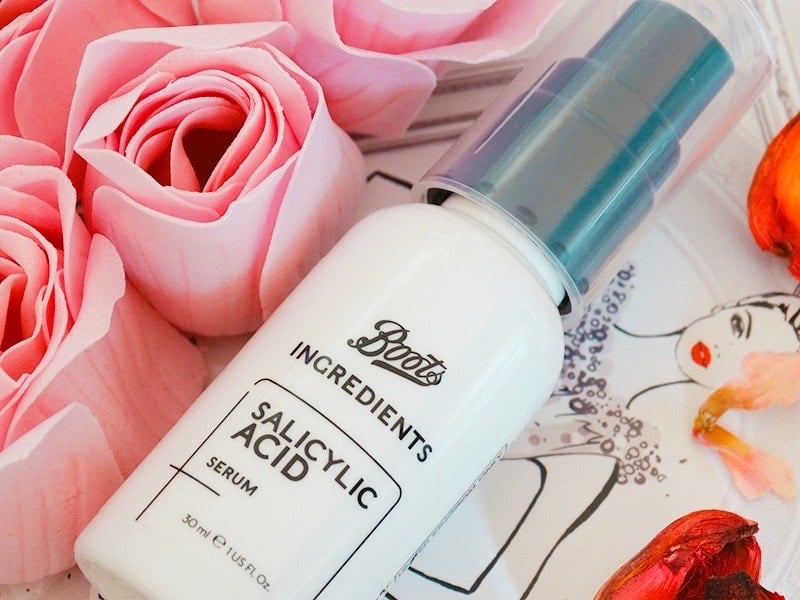
3. Chemical Exfoliants Are Multi-Taskers
This is the real reason why I switched and urge you to do the same. Scrubs are one trick ponies. Even when they exfoliate skin well, that’s all they do. But chemical exfoliants? They’re awesome multi-taskers:
- Glycolic acid: a multi-tasker that exfoliates, hydrates and boosts collagen production. It’s just perfect for dry and sun damaged skin.
- Lactic acid: one of the gentlest exfoliants out there, it also hydrates skin. If yours is sensitive, this is the one to get.
- Salicylic acid: a double duty exfoliant that removes dead cells both on the surface of the skin and inside the pores. There’s nothing better for oily and acne-prone skin. Bye bye pimples!
Whatever your skin type is, there’s a chemical exfoliant that exfoliates it and tackles its woes at the same time. Now, find me a scrub that can do that. Can’t find even a tiny little one, can you?
Related: What’s The Best Chemical Exfoliant For Your Skin Type
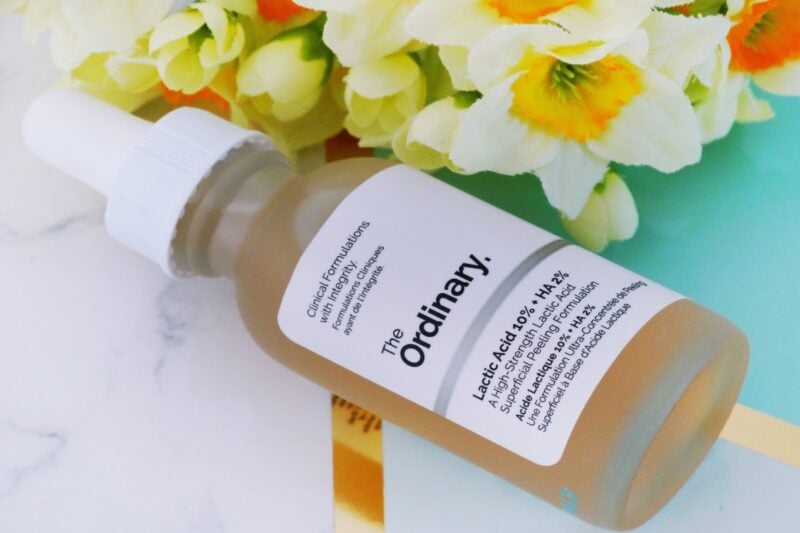
4. Chemical Exfoliants Are Better For Sensitive And Acne-Prone Skin
Physical exfoliants are so not a good idea if you suffer from acne. All that rubbing just irritates your skin, which is already inflamed. It’s a recipe for disaster. Switch to salicylic acid. Your skin will thank you!
Rubbing can also irritate sensitive skin. The only kind of physical exfoliation it can tolerate is a washcloth. But why not try lactic acid instead? You may be surprised by how gentle it is. Plus, it hydrates your skin to boot.
Related: 3 Safe Ways To Exfoliate Sensitive Skin
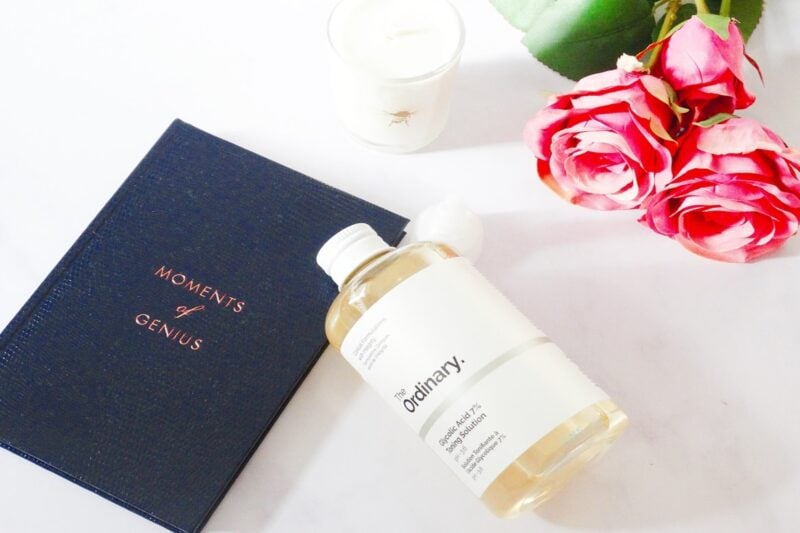
What Are The Best Chemical Exfoliants?
So now you know chemical exfoliants are much better than physical exfoliants and totally the way to go, which one should you buy? What are the best chemical exfoliants for you? It depends on your skin type:
Best For Dry And Sun-Damaged Skin: Glycolic Acid
A glycolic acid exfoliant to target all the signs of aging, such as wrinkles and dark spots. It helps fade hyperpigmentation away, smoothen out texture and hydrate skin:
Best picks:
- Drunk Elephant T.L.C. Framboos Glycolic Night Serum ($90.00): This exfoliant contains two exfoliants. Glycolic Acid to fade away dark spots and Salicylic Acid to unclog pores. Available at Cult Beauty, Sephora and SpaceNK
- Paula’s Choice Resist Daily Smoothing Treatment with 5% AHA ($33.00): A wonderful low strength Glycolic Acid exfoliant that makes skin softer, smoother, and brighter. Available at Paula’s Choice and Selfridges
- The Ordinary Glycolic Acid 7% Toning Solution (£6.80): A gentle, no-frills Glycolic Acid exfoliant for people on a budget. Available at Beauty Bay and Cult Beauty
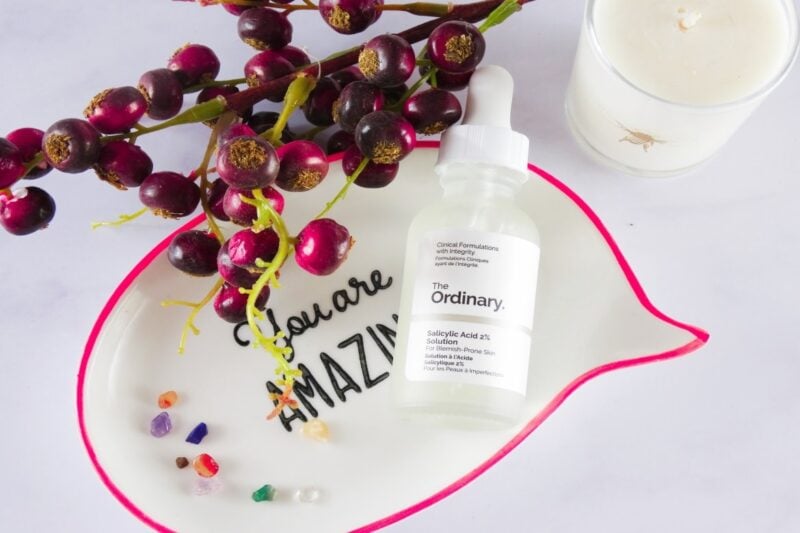
Best For Oily And Acne-Prone Skin: Salicylic Acid
Unlike other chemical exfoliants, salicylic acid is oil-soluble. This means it can get inside the pores, unclogging them from within. It removes blackheads, whiteheads and pimples. Plus, it has anti-inflammatory properties that soothe redness.
Best picks:
- Drunk Elephant T.L.C. Framboos Glycolic Night Serum ($90.00): Don’t let the name fool you. This exfoliant has both salicylic acid to unclog pores and glycolic acid to fade away the dark spots pimples sometimes leave behind. Available at Cult Beauty, Sephora and SpaceNK.
- Paula’s Choice Skin Perfecting 2% BHA Liquid ($29.00): The cult exfoliant from the brand, it unlclogs pores and treats blackheads and acne. The texture’s a little sticky, but if you can take that, this is one of the best salicylic acid exfoliants out there. Available at Cult Beauty, Dermstore, Net-A-Porter, Paula’s Choice, Sephora, and SpaceNK.
- The Inkey List Beta Hydroxy Acid (£9.99): A simple, no-frills salicylic acid exfoliant for people on a budget. Available at Cult Beauty and Sephora.
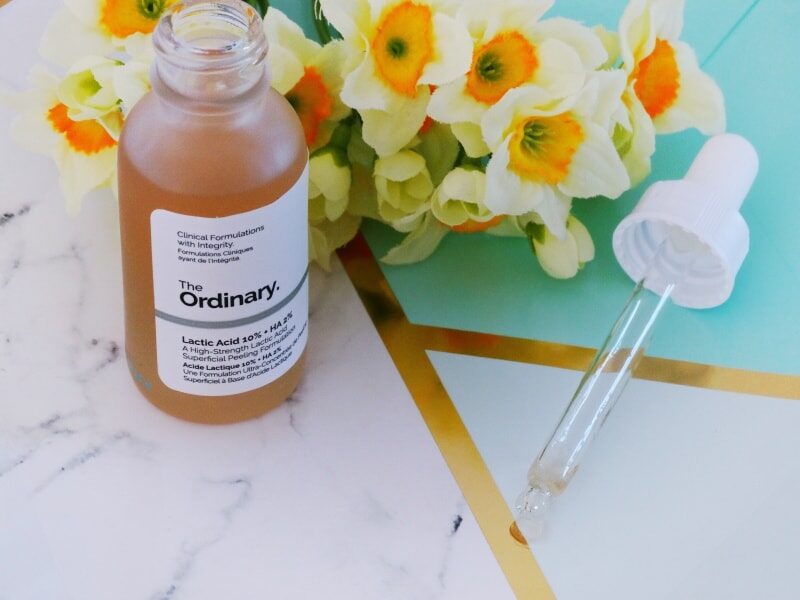
Best For Sensitive Skin: Lactic Acid
Lactic acid is the gentlest chemical exfoliant, so it’s perfect for sensitive skin. Just don’t use it more than once a week.
Best picks:
- Peach & Lily Power Cocktail Lactic Acid Repair Serum ($51.00): It has 10% lactic acid to exfoliate and brighten skin, plus antioxidants and soothing ingredients that can help you fight premature aging and reduce redness. Sensitive skin can’t tolerate the most powerful anti-aging ingredients, like retinoids, so this is the next best thing. Available at Peach & Lily and Ulta
- Sunday Riley Good Genes All-In-One Lactic Acid Treatment – US Version ($105.00): A luxury exfoliant that deeply hydrates skin and helps to fade away dark spots. Available at Sephora and Ulta
- The Ordinary Lactic Acid 5% + HA 2% ($6.79): A mild concentration that hydrates, exfoliates, and brightens the complexion. There’s also a 10% version available, when you’re ready to upgrade. Available at Beauty Bay, Cult Beauty, Look Fantastic, Sephora, SpaceNK, The Ordinary and Ulta
Related: How To Choose The Best Exfoliator For Your Skin Type
The Bottom Line
Chemical exfoliants are gentler and more effective than scrubs and go the extra mile too. They exfoliate, hydrate, prevent wrinkles and even soothe irritations! What more could you ask for? Give them a go, you’ll never go back to scrubs again!

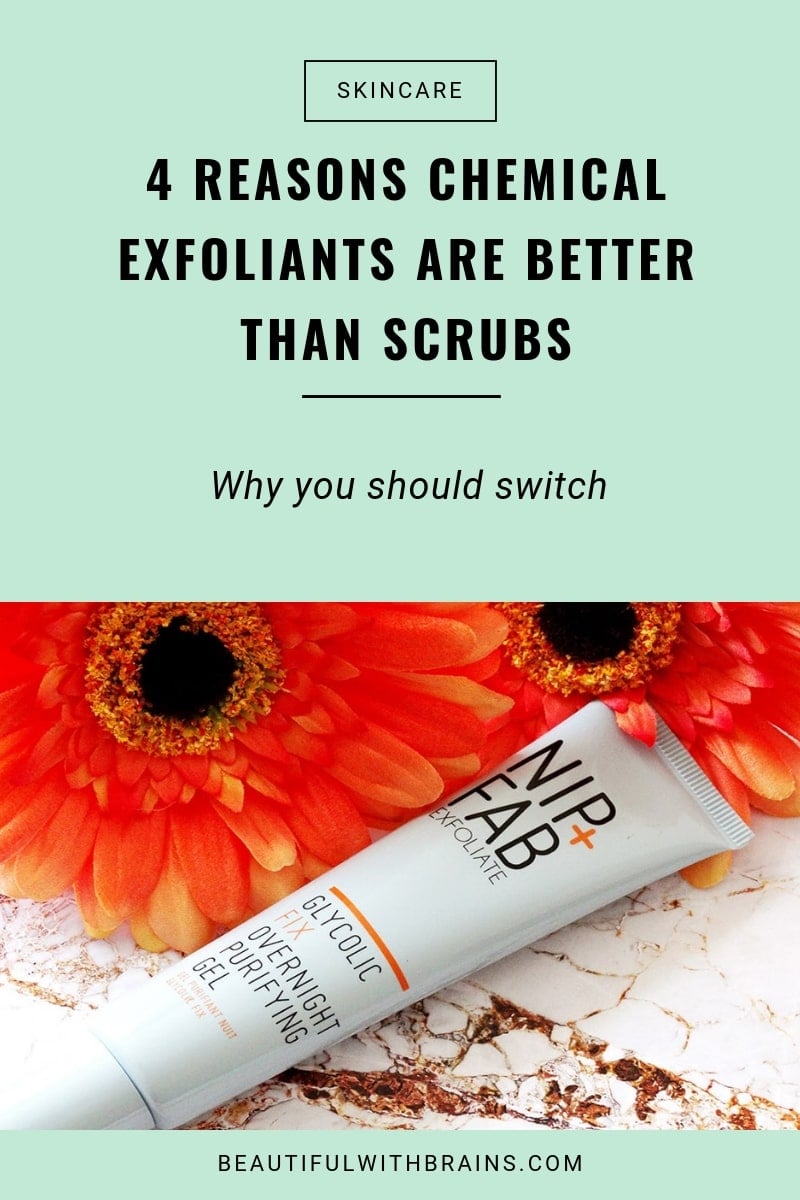

Really? I totally prefer physical exfoliants, but I see where you’re coming from.
Trisha, I think that, when done right, physical exfoliants give a more immediate satisfaction, as you can see the beads removing dead skin cells and showing the brighter and clearer skin underneath straight away. Chemical exfoliants work more slowly, but I find that they give more reliable results, and more gently too. 🙂
Yes, yes, a million times, yes! Physical exfoliants seem to make my skin more flaky and dry, not less. The right chemical exfoliants, on the other hand, really speed up the process of shedding dead skin and leave me with a smoother canvas. A konjac sponge is the most physical exfoliation I think I can handle.
Coco, yay! Another fan of chemical exfoliants! They are amazing, aren’t they? They give great results and work for everyone. Physical exfoliants can be a lot rougher on the skin instead.
I use a mix of both though I use chemical exfoliants more; It just depends on my mood. Most of the time I use chemical exfoliants on my face and every now and then I’ll use a physical exfoliant mostly around the t-zone.
Janessa, it’s nice to use a physical exfoliant every now and then, isn’t it? But for my regular routine, I much prefer chemical exfoliants. They work so much better, don’t they?
They sure do! And they are so much more gentler which is important. :]
I agree! 🙂
Paula’s Choice exfoliants are my favorites. They are effective and gentle at the same time.
Ingrid, they are awesome, aren’t they? I love the whole line, it’s very well formulated. 🙂
I just started using a glycolic acid product and I’m really liking it. I think saving the physical scrubs for my body not my face is my new plan of action
Katie, that’s a smart plan! Once you try a good chemical exfoliant, there’s just no going back. 🙂
I love Paula’s choice exfoliants too! I’ ve been using salicylic acid daily for a year and it’s really great. Now I have also a glycolic acid lotion to use it once a week. I am using my old physical exfoliants for my feet…
Leire, I’m glad you enjoy them too. They are great indeed. 🙂
I’ve been using the Japanese chemical exfoliant Cure Natural Aqua for a month now and it really suits my sensitive skin.
Dont be shy to ask if you want me to post below my honest opinion about it and how I like to use it xxx
Pastelita, I’d love to know what you think of it! 🙂
Hiya Gio!
Happy New Year 2015 to you and all the readers!!! I hope you are well 🙂
In Occidental culture, we tend to believe that the harsher the exfoliation the better. That’s why a performant exfoliator that doesn’t strip our skin raw may come quite as a shock!
In Asia, the mindset is different. Gentle, AND effective chemical peels are being used there for ages.
Well, my feedback regarding “Cure Natural Aqua Gel exfoliator” is the 1st beauty review I’ve ever posted! I wanted my fellow buyers to make an informed decision while purchasing online.
I confirm this is a rinse-off, no-grains exfoliator: once massaged, little “peels” (very alike the ones you get when rubbing an eraser on a paper drawing) will form up.
Interestingly, bloggers attempted to crack the code behind this phenomenon. Some of them believe these residues are skin dead cells; some others assert those are the result of the product binding to the skin natural oils.
The vast majority feel grossed out! Not sure why, sand-papering the face is even grosser lol
I personally have no opinion about it but am open to read any scientific demonstration 🙂
The only fact I’m confident about is that I haven’t noticed nasties in the formula – hum, as far as my education from Paula’s Choice allowed me to detect!
One has to be patient because the no-grain ritual takes longer than polishing with traditional exfoliators.
On top of that, rinsing is tricky: those little residue balls adhere to the skin too well! Your hands will be your best tools, contrary to face sponge/ cotton pad/ konjac dome.
Here is below the English translation from my original review in French Amazon:
Now, I’ve been using this exfoliator for + 1 month. My skin is reactive and prone to eczema, still I tolerated this product without any concern at all.
Since that product is watery, I’d recommend not to spread it out on the whole face. Otherwise, it will sink into the skin, leaving a dry surface that cannot be manageable for exfoliating purpose.
Instead, adjust bit by bit the quantity according to the size of the area to exfoliate. That is to say, pump the amount needed to exfoliate your cheeks. Once done, press another drop for your forehead etc. Massage gently your face upward to aid draining.
Make sure your face and hands are clean and dry, lest this will affect the product performance.
Once opened, it is recommended to keep the bottle in the fridge. It will conserve its properties for 6-8 months, then making it an economical product.
The bottle may be slightly damp out of the fridge: just wrap it with a towel, so as to keep your hands dry.
Results were immediate and clearly exceeded my expectations: very smooth skin, glow from within, freshened-up complexion.
This experience really questions the principle of classic scrubs!
Beside, I’m convinced that gentle cleansing + moisturizing day and night bring solid long-term benefits, hence I do exfoliate once a week only. Ok, maybe up to twice a week during summer to keep an uniform tan 😉
I’ve noticed that I didn’t get that many balled-up peels, compared to other bloggers pics. Is it due to my daily skin care mentioned above?
Best pampering moment of the week: after sauna, followed by a home-made soothing organic coconut oil and honey mask!
Hope this helps
xxx
Pastelita, I’m fine thanks. I hope you are too and I wish you a wonderful 2015!
When it comes to skincare, in Asia they have a totally different mindset indeed and one that, imo, is often better and more effective than ours.
Thank you for sharing your review. It’s really good! You should start your own blog too. And you’ve certainly tempted me to try this exfoliator.
I’m loving some much your blog Gio. Thanks a lot!!! Already spend like an hour reading haha
Sandra, oh, so glad you like it. Means a lot! Hope to see you around here often.
I have sensitive skin, exfoliants of any kind tend to cause my cheeks to become raw. i had a bad experience with a supermarket brand AHA exfoliant so since then feel wary now.
I thought beads scrub type of physical exfoliant would be better for me but even those are harsh and feel like they are scratching lines in the face with a steelo soap pad more than exfoliating. and then if they’re not biodegradable they go to the ocean pollution.
I am curious to try this you have reccomened.
just a question. is there a physical difference between sloughing and exfoliating?
thanks.
Julina, exfoliating sensitive skin can be a pain (in every sense of the word)!
Physical exfoliants, with the exceptions of washcloths and maybe konjac sponges, are way too harsh for sensitive skin. You need something with glycolic acid, or better yet, lactic acid, which is even gentler.
Whatever product you choose, use it only once a week. That’s more than enough for sensitive skin.
As far as I know, I don’t think there is.